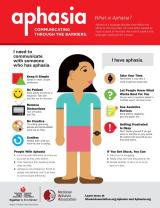Should I have bariatric surgery?
The decision to have bariatric surgery is a significant one and should be made after careful consideration and consultation with healthcare professionals. Bariatric surgery is typically recommended for individuals who meet certain criteria:
BMI (Body Mass Index): Bariatric surgery is often considered for individuals with a BMI of 40 or higher (severe obesity) or a BMI of 35-39.9 with significant obesity-related health issues (such as type 2 diabetes, high blood pressure, or sleep apnea).
Failed Weight Loss Attempts: Candidates for bariatric surgery should have a history of unsuccessful attempts at sustained weight loss through non-surgical methods, such as diet and exercise.
Health Conditions: Bariatric surgery may be recommended for those with obesity-related health conditions that can improve or resolve with weight loss surgery.
Psychological Evaluation: Candidates usually undergo a psychological evaluation to assess their mental and emotional readiness for surgery and to ensure they have realistic expectations about the procedure and lifestyle changes.
Commitment to Lifestyle Changes: Success with bariatric surgery requires a lifelong commitment to dietary changes, exercise, and follow-up care. Candidates must be prepared for these changes.
Medical Evaluation: A thorough medical evaluation helps determine if the person is a suitable candidate for surgery and assesses potential risks.
Before deciding on bariatric surgery, individuals should:
Consult with a healthcare provider or bariatric surgeon: Discuss your weight loss goals, health history, and available options.
Explore non-surgical options: Consider trying non-surgical weight loss methods first, under the guidance of a healthcare provider.
Understand the risks and benefits: Bariatric surgery can lead to significant weight loss and improvements in health, but it also carries risks and requires lifestyle changes.
Talk to others who have had the surgery: Hearing about the experiences of individuals who have undergone bariatric surgery can provide valuable insights.
Attend informational sessions: Many bariatric surgery centers offer informational sessions or support groups that can help individuals learn more about the process.
Ultimately, the decision to have bariatric surgery should be based on individual health needs and goals. It's essential to work closely with a healthcare team to make an informed choice and receive the necessary pre- and post-operative support.












